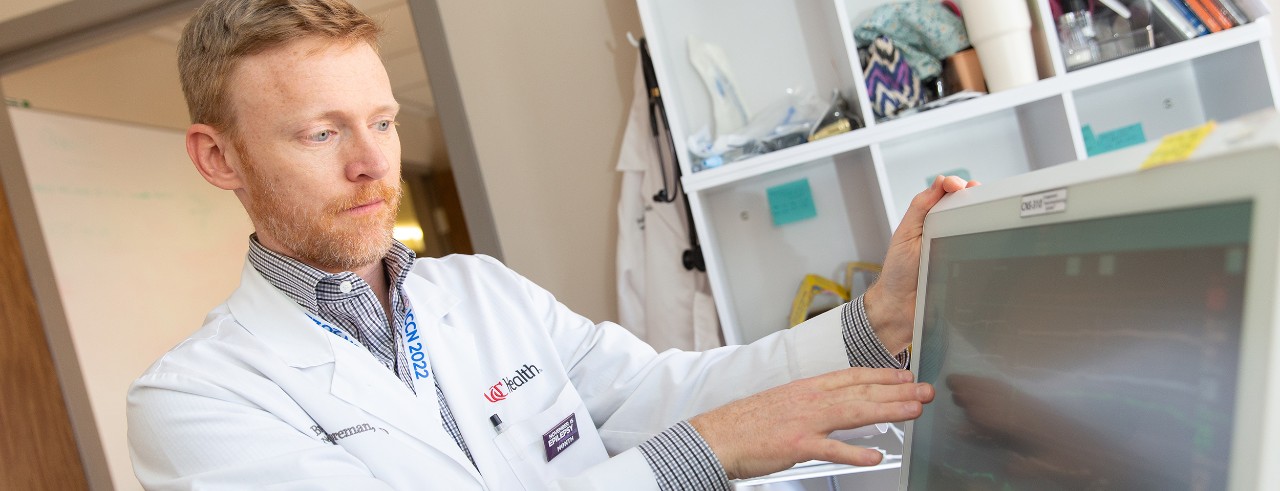
Tracking TBI: neuromonitoring for brain injuries
UC expert discusses advances in neurocritical care with Albany, Georgia's WALB
The University of Cincinnati's Brandon Foreman, MD, discussed advances in multimodal neuromonitoring with Albany, Georgia's WALB-TV.
Like traditional monitoring of a patient's heart rate, blood pressure and oxygen levels, multimodal neuromonitoring tracks similar brain health data points for patients with traumatic brain injuries. Measurements like blood flow, pressure, oxygen and glucose levels in the brain give actionable information over time when treating patients with severe brain trauma.
"What’s happening in the patient on day one is often very different compared to what’s happening to that patient on day three," said Foreman, associate professor of neurology and associate director of neurocritical care research in the Department of Neurology and Rehabilitation Medicine in UC’s College of Medicine and a UC Gardner Neuroscience Institute physician. "We’re learning a lot about what those patterns look like, how individual they are and how we can treat them in a more precise way tailored to that patient."
Read more about multimodal neuromonitoring work at UC.
Featured photo at top of Foreman reviewing brain data on a monitor. Photo/Andrew Higley/UC Marketing + Brand.
Related Stories
Love it or raze it?
February 20, 2026
An architectural magazine covered the demolition of UC's Crosley Tower.
Social media linked to student loneliness
February 20, 2026
Inside Higher Education highlighted a new study by the University of Cincinnati that found that college students across the country who spent more time on social media reported feeling more loneliness.
Before the medals: The science behind training for freezing mountain air
February 19, 2026
From freezing temperatures to thin mountain air, University of Cincinnati exercise physiologist Christopher Kotarsky, PhD, explained how cold and altitude impact Olympic performance in a recent WLWT-TV/Ch. 5 news report.
